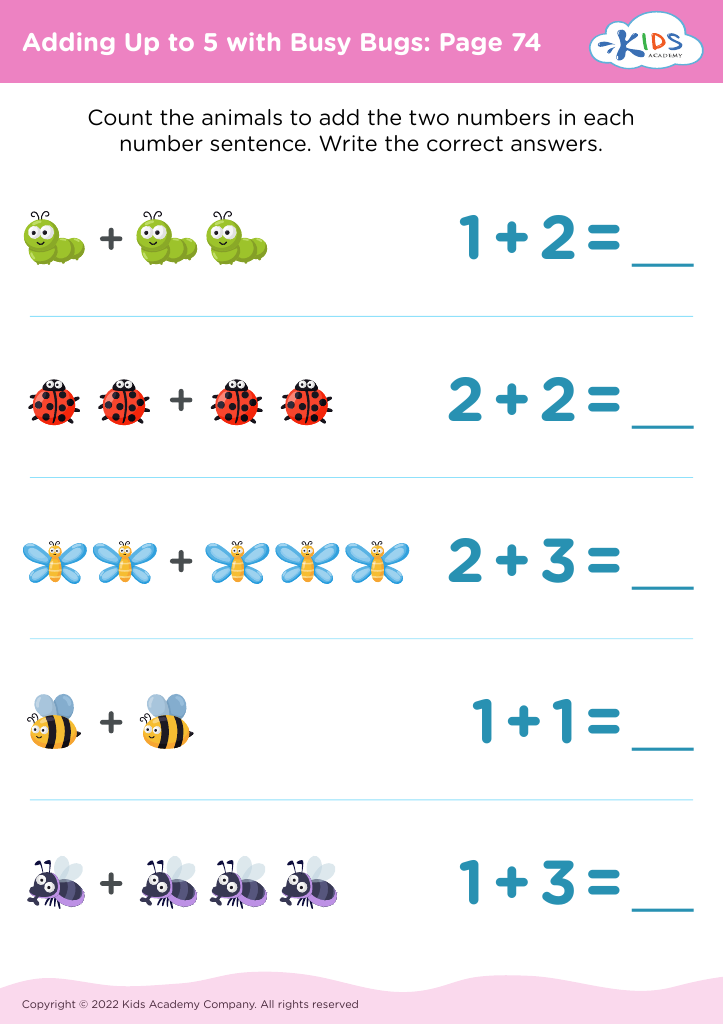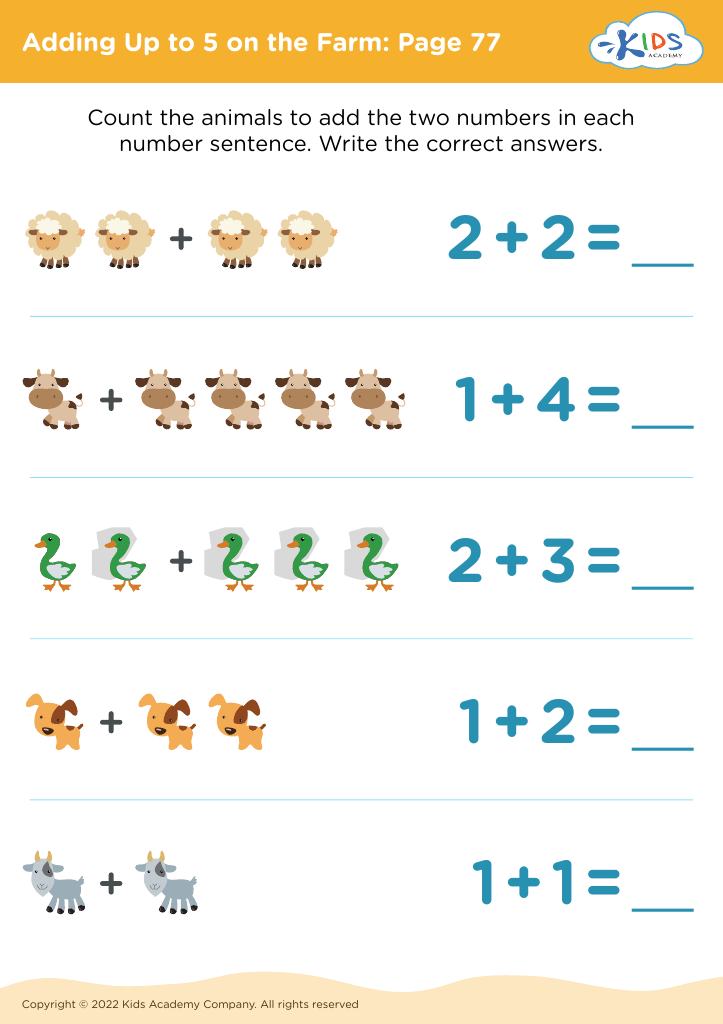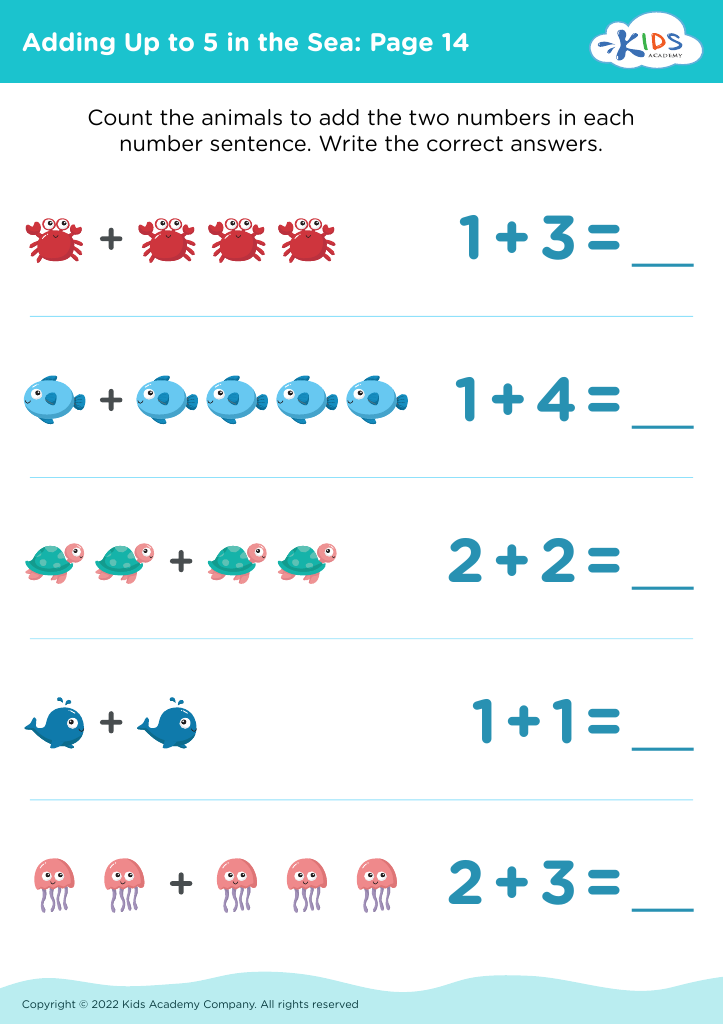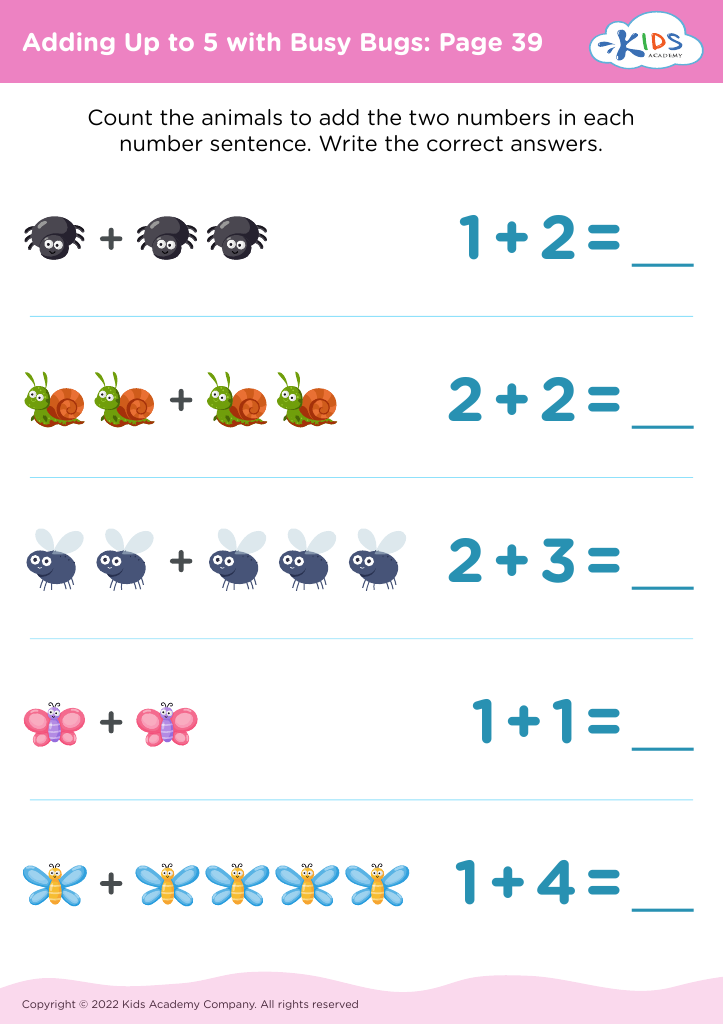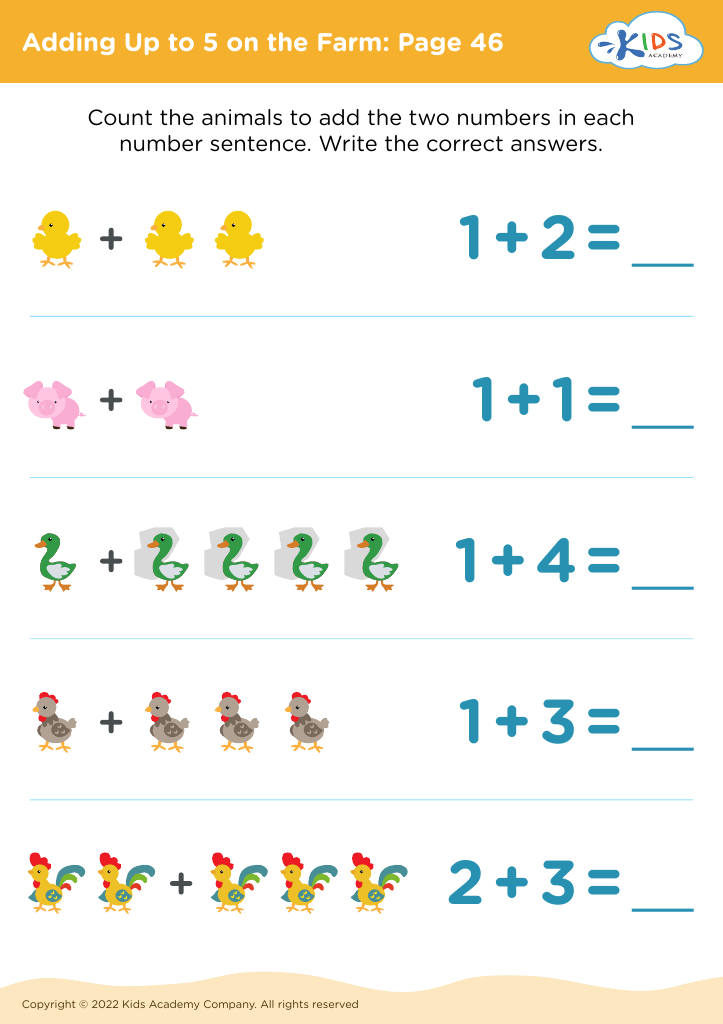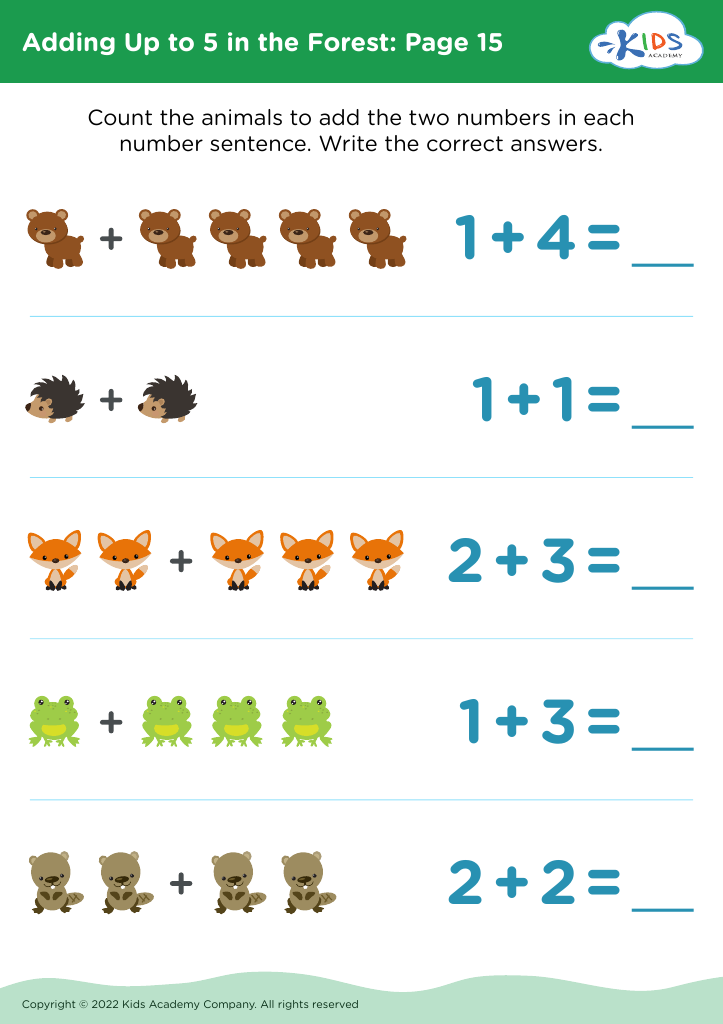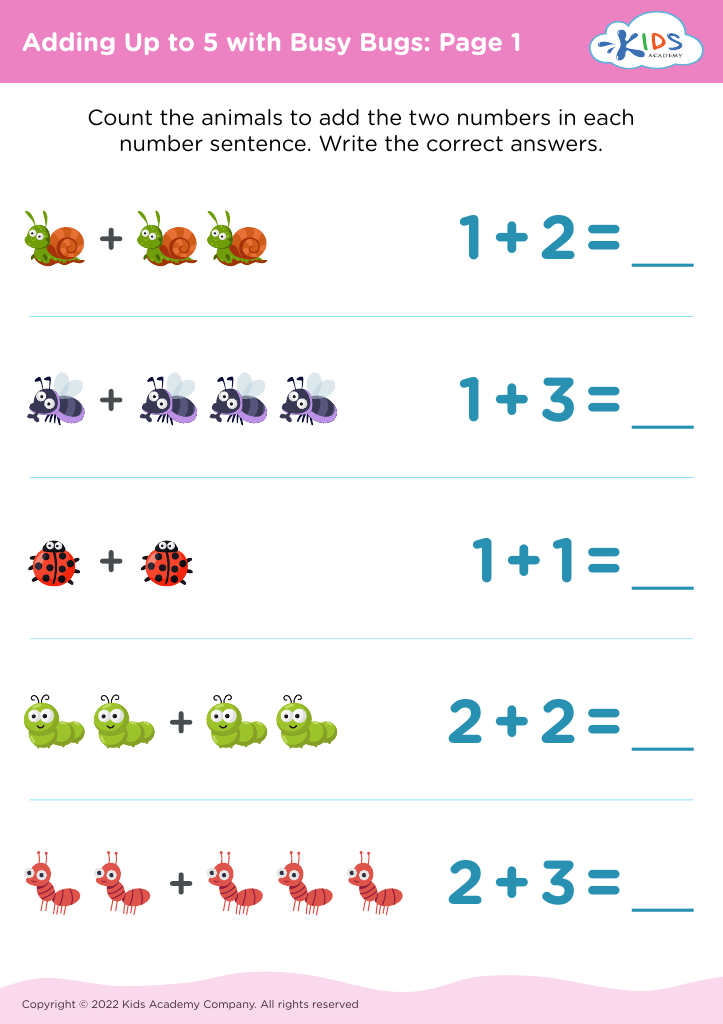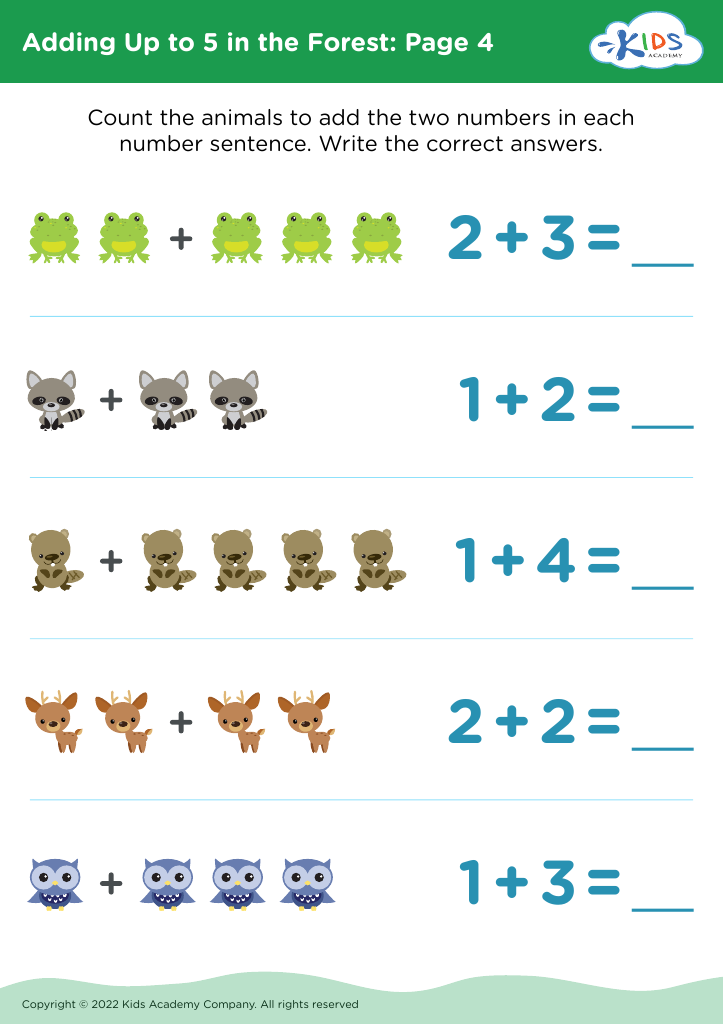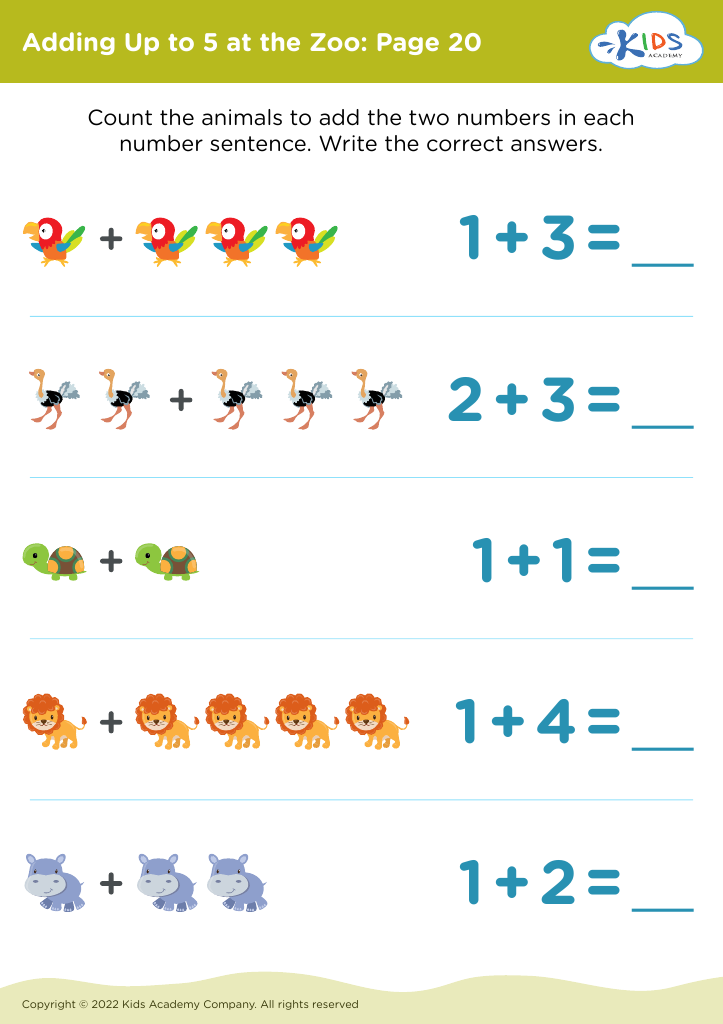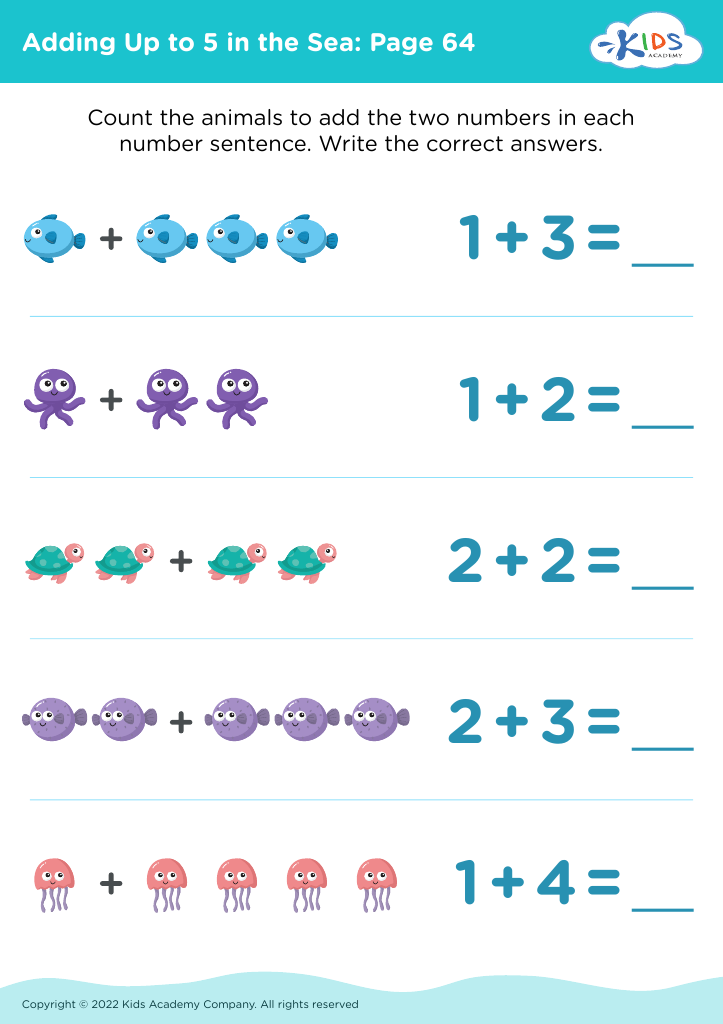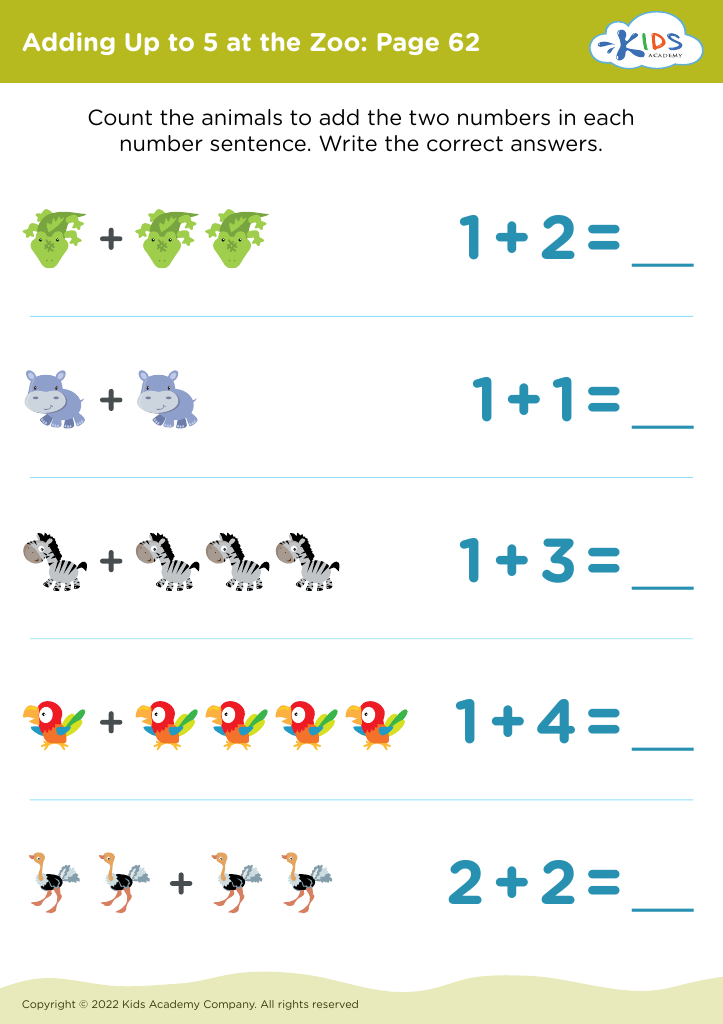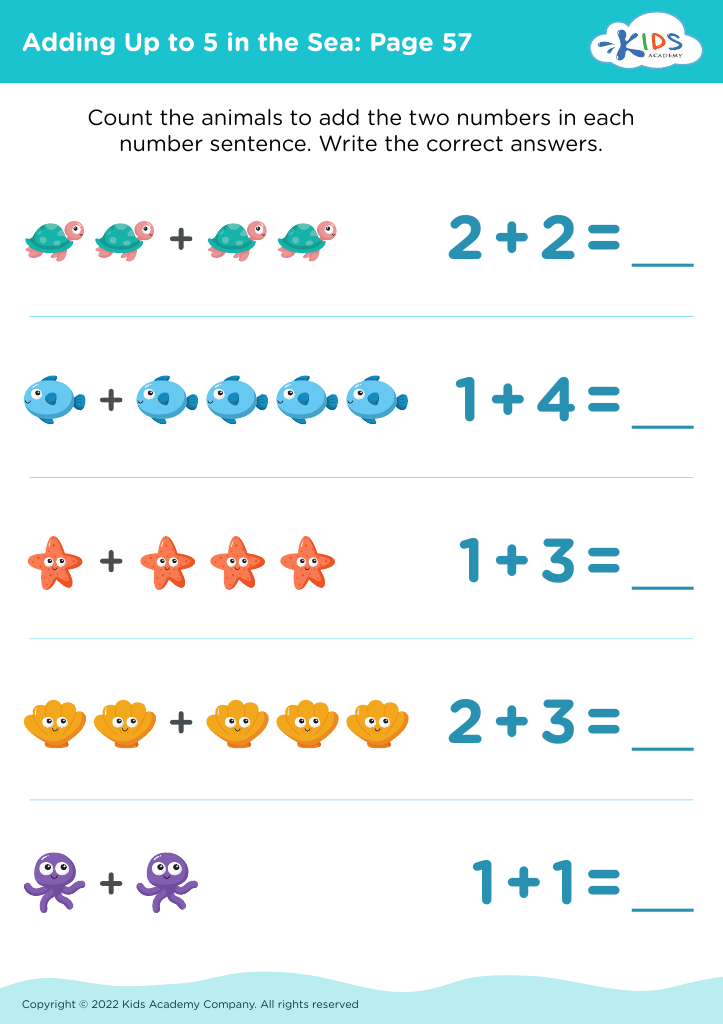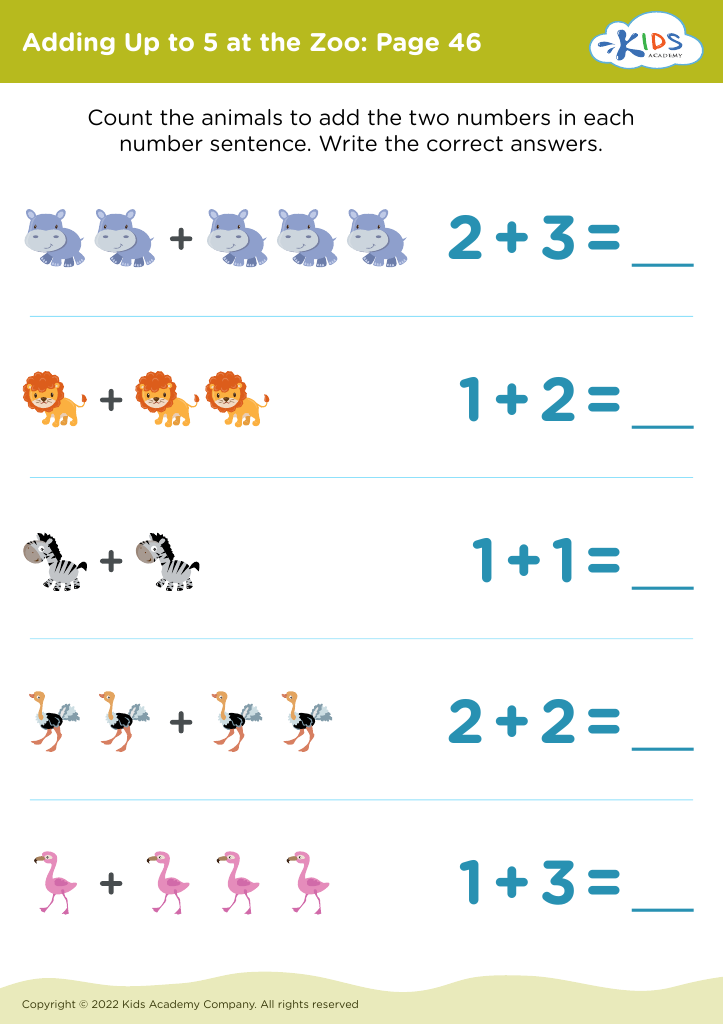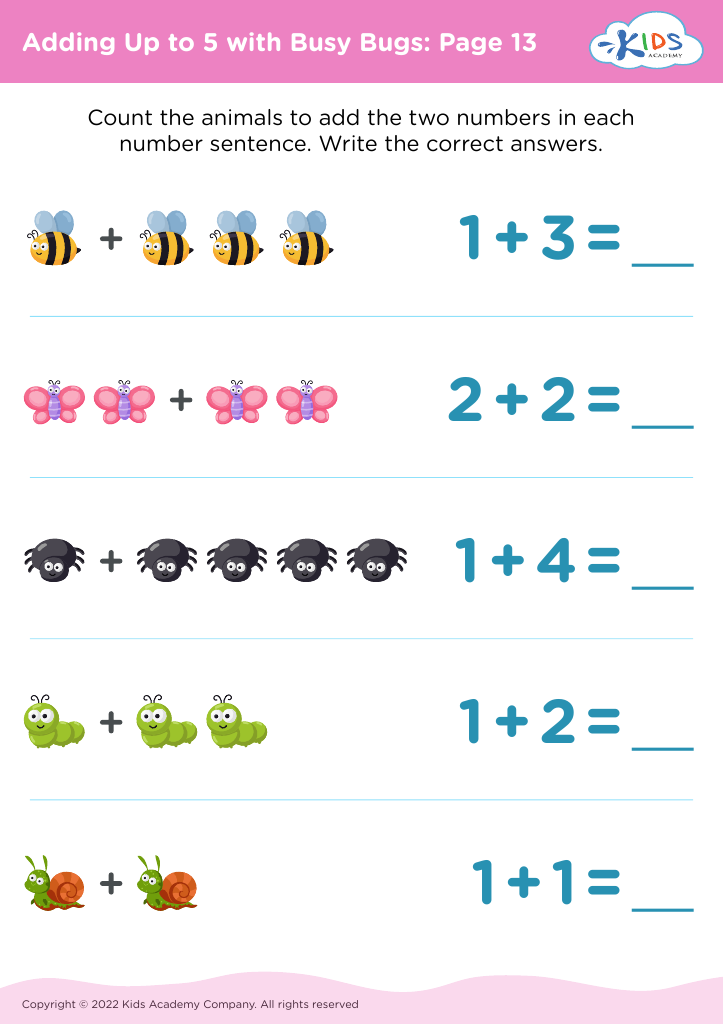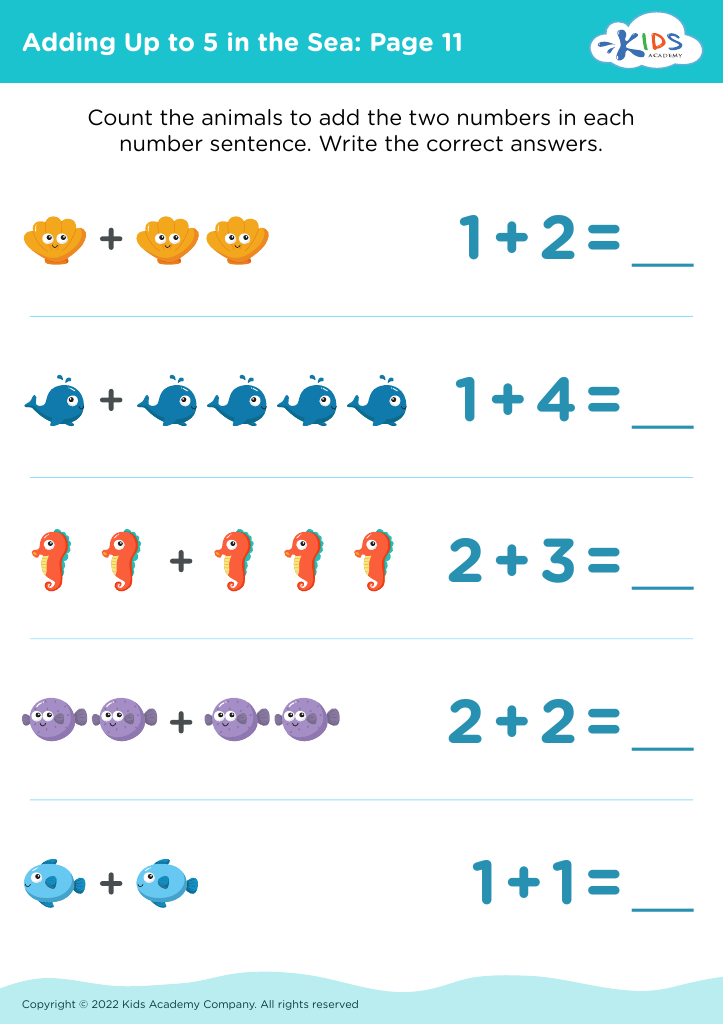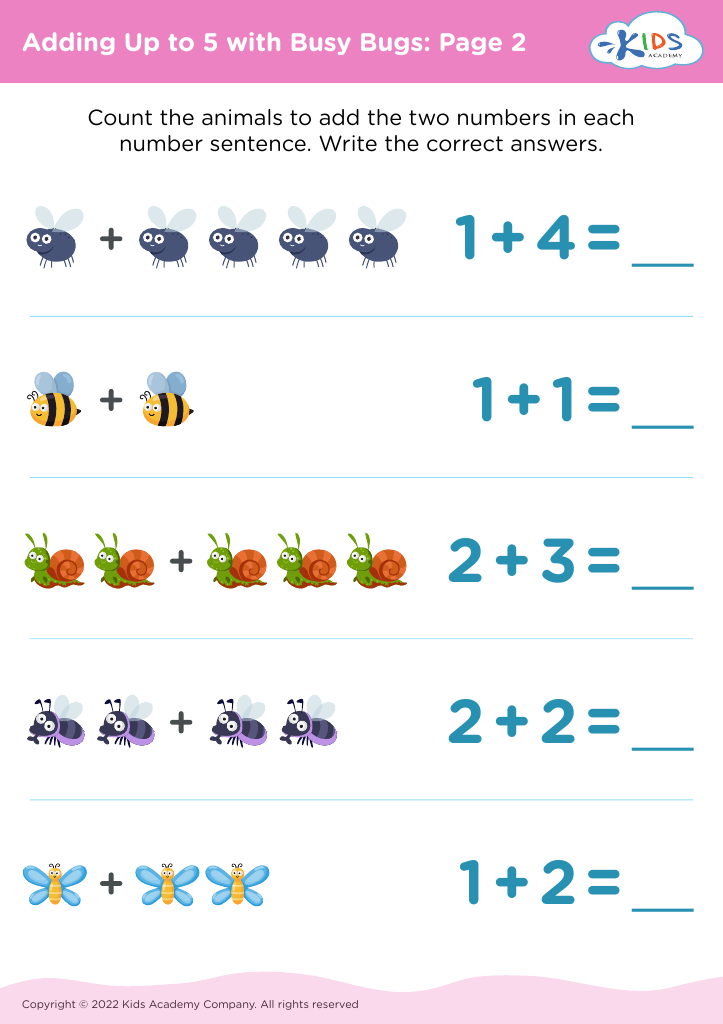Basic Arithmetic Addition Worksheets for 4-Year-Olds
36 filtered results
-
From - To
Welcome to our "Basic Arithmetic Addition Worksheets for 4-Year-Olds!" Designed to introduce young learners to the world of math, these engaging worksheets make learning addition fun and interactive. Our age-appropriate activities help children develop essential counting and problem-solving skills through colorful illustrations and friendly exercises. With a variety of exercises, kids will practice adding simple numbers, fostering a solid foundation in mathematics. Parents and teachers can easily access and print these worksheets, promoting learning at home or in the classroom. Explore our collection today and watch your little ones build confidence and excitement in their math journey!
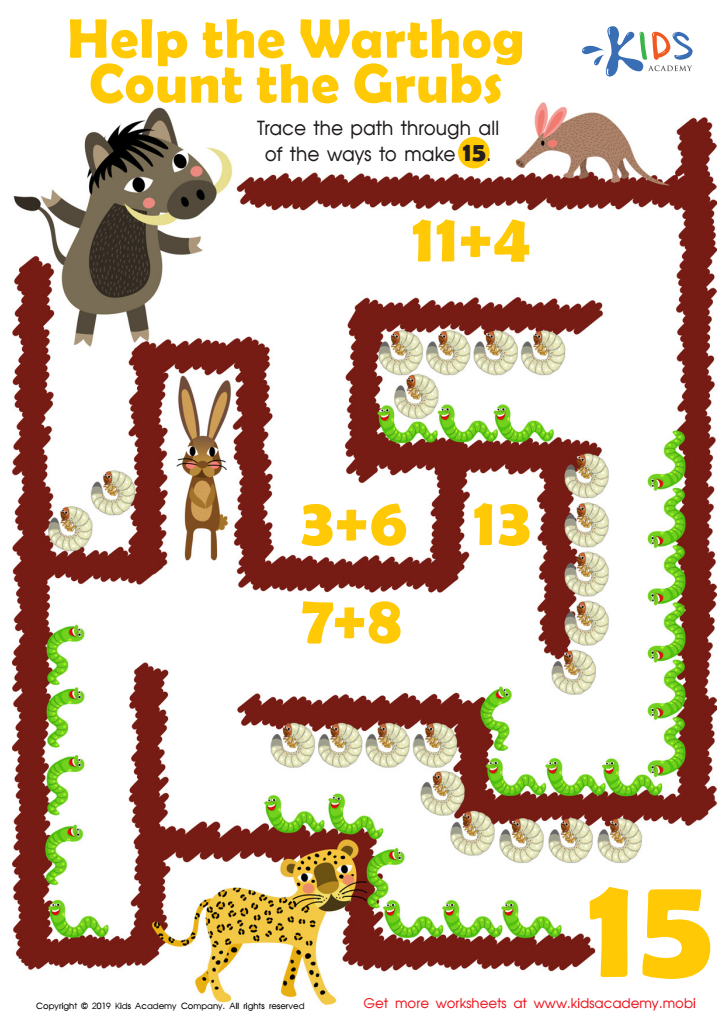

Help the Warthog Count the Grubs Worksheet
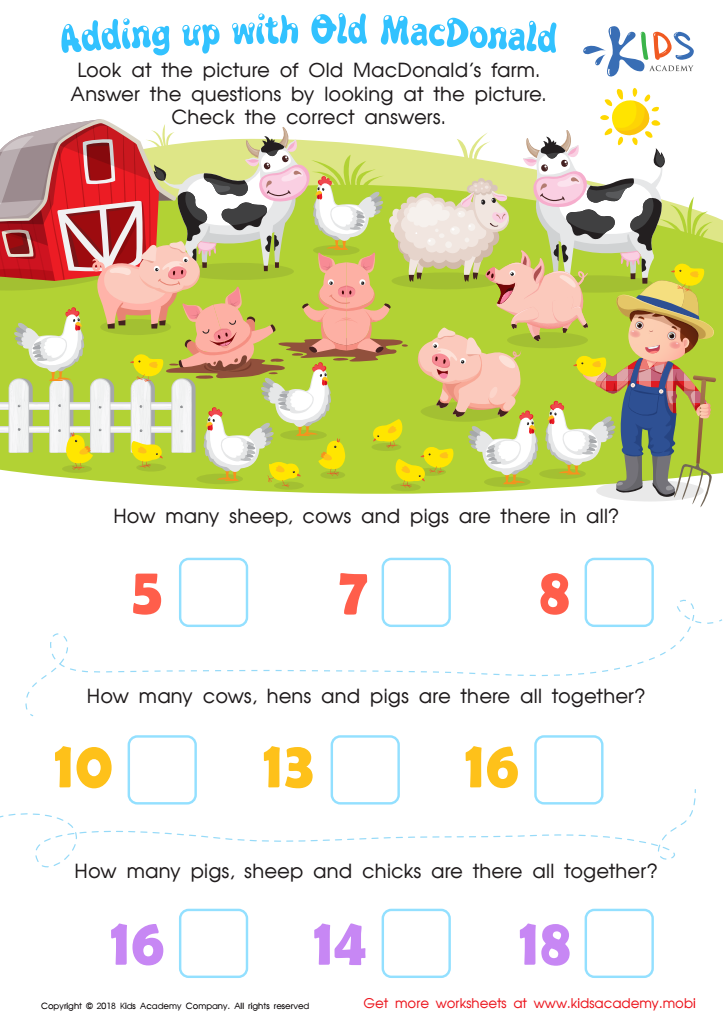

Adding Up with Old MacDonald Worksheet
Parents and teachers should care about basic arithmetic addition for 4-year-olds because it forms the foundation for a child's mathematical journey and cognitive development. At this stage, children are naturally curious and eager to learn, making it an ideal time to introduce early math concepts. Understanding addition enhances their problem-solving skills and strengthens their cognitive reasoning, which is crucial for future learning.
Additionally, early exposure to basic arithmetic fosters a sense of confidence and promotes a positive attitude toward math. When children grasp simple addition, they build a sense of achievement, which motivates them to tackle more complex math concepts as they advance in their education. Learning addition also helps develop critical life skills, such as counting in everyday situations (e.g., sharing toys, recognizing numbers in real life).
Moreover, teaching addition through playful activities, such as counting objects or using visual aids, can enhance children’s engagement and enjoyment in learning. This playful approach builds not only mathematical understanding but also social skills as they work with peers. Ultimately, the skills acquired in early arithmetic lay the groundwork for lifelong learning and a positive relationship with math, making it essential for parents and teachers to prioritize this early learning phase.
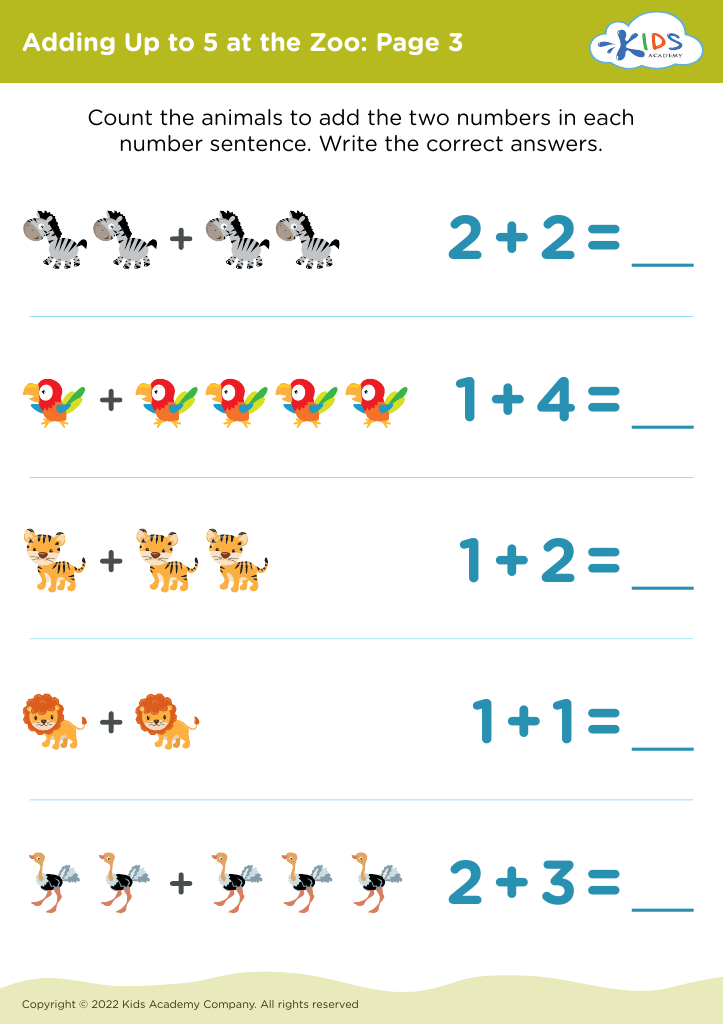
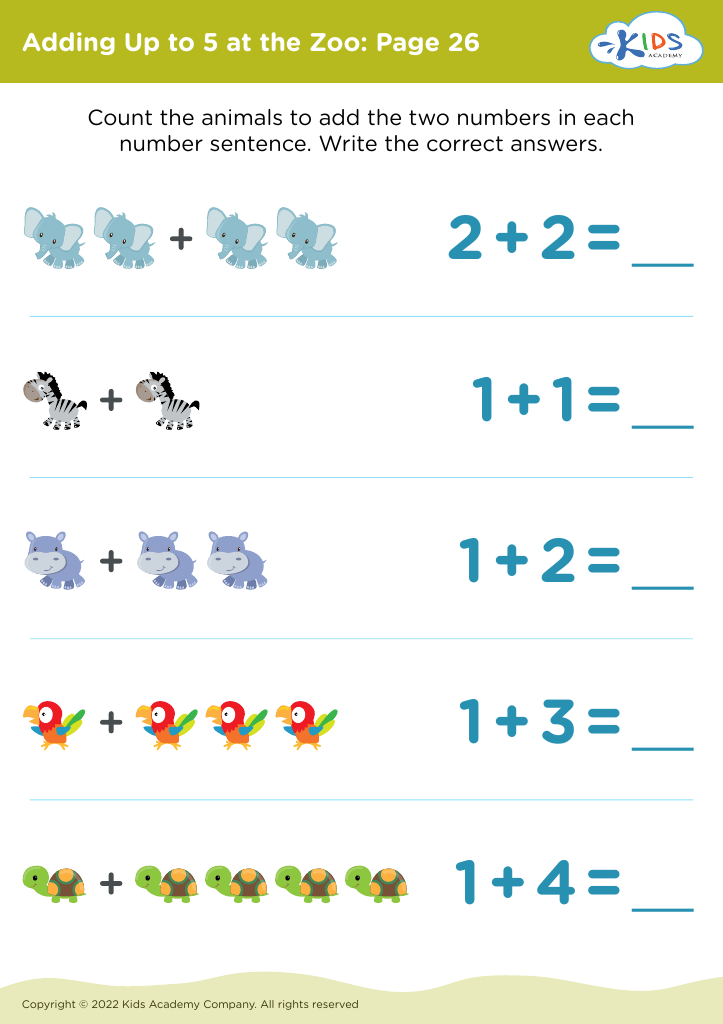
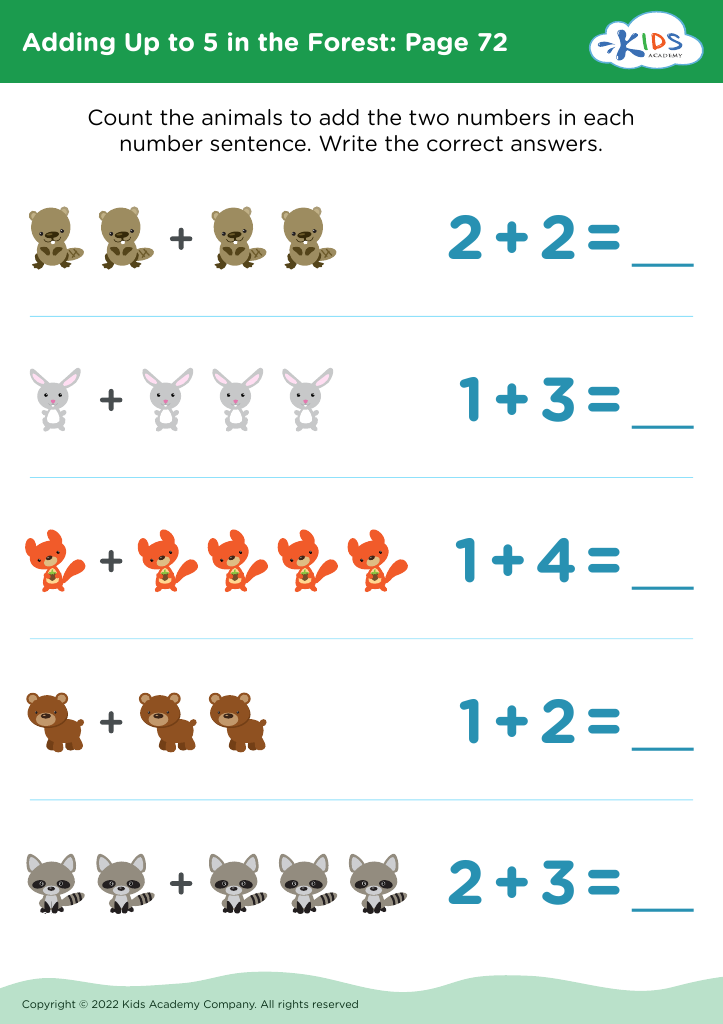
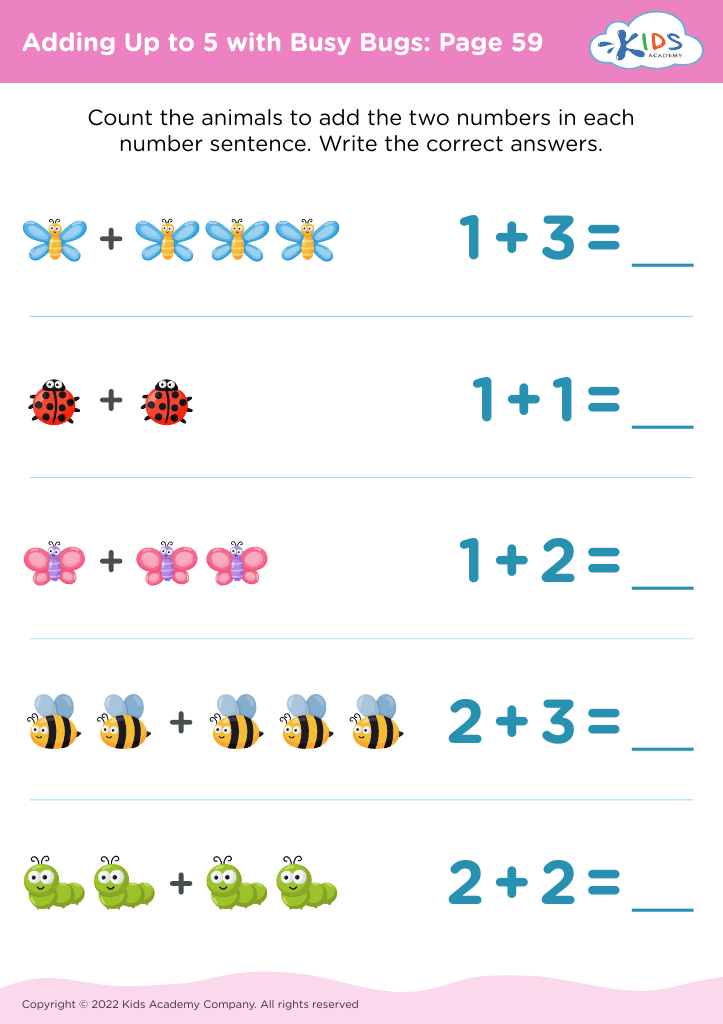
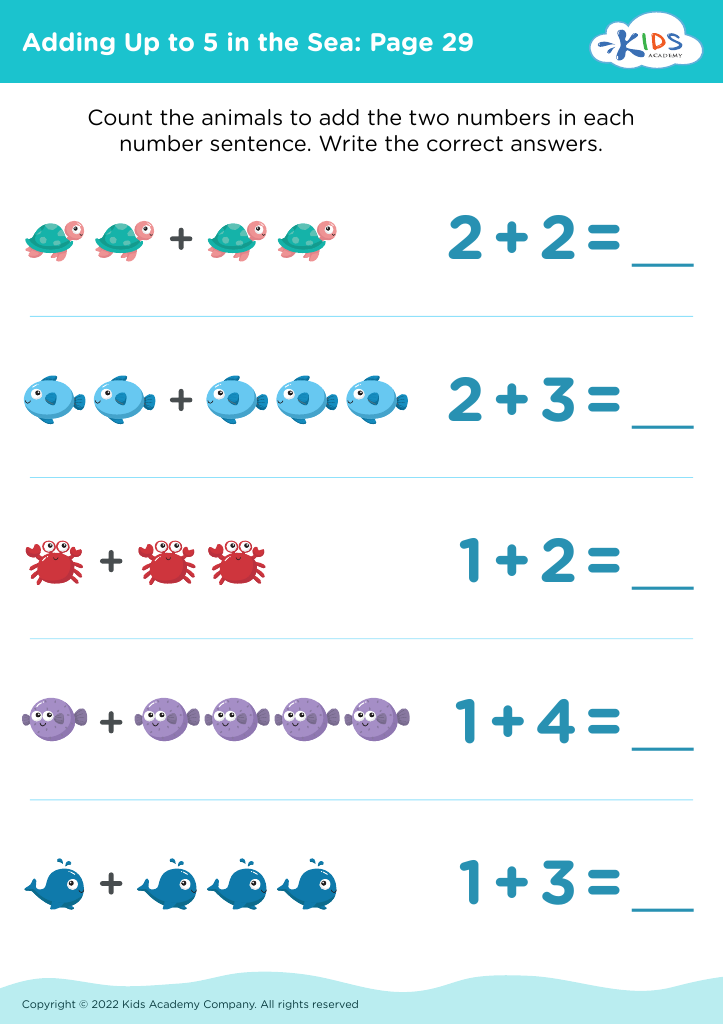
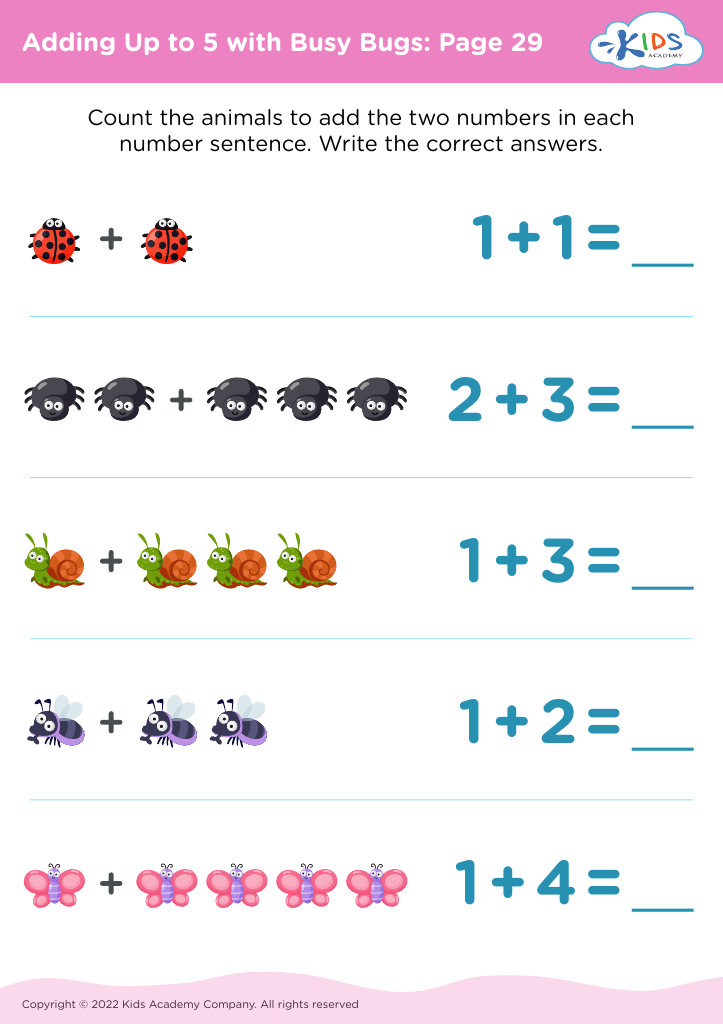
 Assign to My Students
Assign to My Students
